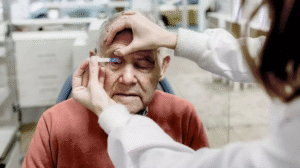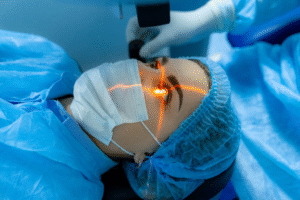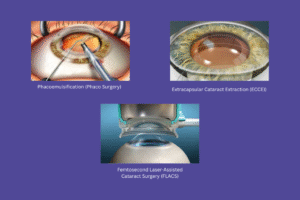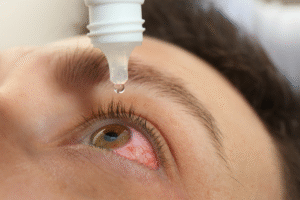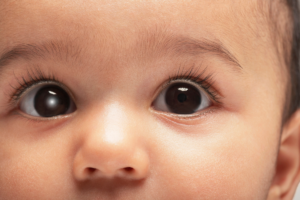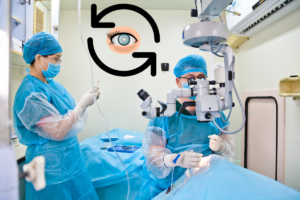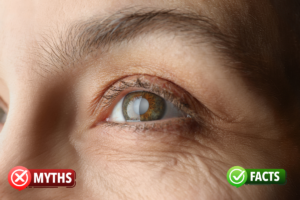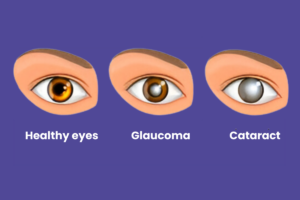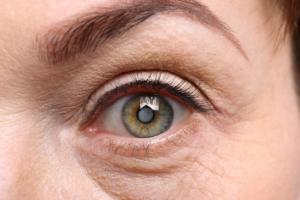Which season is best for cataract surgery?

Cataract surgery is one of the safest and most effective procedures in modern medicine. But if you’re planning for it, you might be wondering — does the season matter? While cataract surgery can be done year-round, some seasons may offer practical and personal advantages that can improve your comfort and recovery experience.
In this blog, we’ll explore how different seasons affect cataract surgery and help you decide which time of year might be best for you.
Table of Contents
ToggleIs there a medically best season for cataract surgery?
From a medical standpoint, there is no strict seasonal restriction for cataract surgery. The procedure is safe and effective in all seasons, as long as the patient is fit for surgery and the eye is stable.
However, certain seasonal factors such as climate, lifestyle, and availability can influence your comfort during recovery and your scheduling options.
Advantages of each season
1. Winter (November to February)
Pros:
- Cooler temperatures reduce sweat, making it easier to maintain eye hygiene.
- Less sunlight exposure may reduce eye strain and sensitivity during recovery.
- A good option for retired or elderly patients who prefer staying indoors.
Cons:
- Risk of seasonal infections like cold or flu (which might delay surgery).
- Some patients may feel uncomfortable stepping out in cold weather for follow-up visits.
2. Summer (April to June)
Pros:
- Longer daylight hours make it easier to attend morning appointments.
- May coincide with school or work holidays, offering flexibility for caretakers or family support.
Cons:
- Excessive heat and sweating can lead to discomfort and risk of eye infection.
- Bright sunlight may cause light sensitivity post-surgery.
- Risk of dust and pollution aggravating recovery.
Tip: Use sunglasses and stay hydrated if opting for summer surgery.
3. Monsoon (July to September)
Pros:
- Cooler than summer, with reduced heat-related discomfort.
- Some patients find recovery easier due to more time spent indoors.
Cons:
- Increased humidity can make the eyes feel sticky or irritated.
- Damp weather may lead to bacterial or fungal infections if eye hygiene is not maintained.
- Travel to the hospital may be difficult during heavy rains or waterlogging.
4. Autumn/Spring (October to November / February to March)
Pros:
- Mild and pleasant weather supports a comfortable recovery.
- Lower risk of infections compared to monsoon and winter.
- Less sweating and fewer environmental irritants.
Cons:
- Seasonal allergies (pollen, dust) may affect some individuals.
Other factors to consider when choosing the season
- Your schedule: Consider personal or professional commitments and plan accordingly.
- Caregiver availability: Opt for a time when a family member can assist during your recovery.
- Hospital/surgeon availability: Some months may be busier than others; pre-booking helps.
- Pre-existing health conditions: Chronic issues like asthma or arthritis may flare up in certain seasons and should be factored in.
When is the right time for you?
Rather than choosing a season solely based on weather, it’s best to ask yourself:
- Are my cataract symptoms affecting my daily life?
- Is my vision impacting my ability to work, drive, or enjoy life?
- Do I have the time and support to recover comfortably?
If the answer is yes, then the best season for cataract surgery is as soon as you’re ready.
Conclusion
There is no “perfect” season medically for cataract surgery — each season has its pros and cons. The best time is when your vision needs it, and when you’re ready with proper support, mindset, and guidance.
If you’re unsure when to schedule your cataract surgery, consult with the experienced ophthalmologists at Krisha Eye Hospital, Ahmedabad. We’re here to guide you every step of the way.
Book your consultation today at Krisha Eye Hospital.
Author bio
Dr. Dhwani Maheshwari, an esteemed ophthalmologist with over 10 years of experience, leads Krisha Eye hospital in Ahmedabad with a commitment to advanced, patient-centered eye care. Specializing in cataract and refractive surgery, Dr. Maheshwari has performed more than a thousand successful surgeries. Her expertise lies in phacoemulsification, a technique recognized for its precision in cataract treatment.
Dr. Maheshwari’s educational journey includes an MBBS from Smt. NHL MMC, a DOMS from M & J Institute of Ophthalmology, and a DNB in Ophthalmology from Mahatme Eye Bank Eye Hospital, Nagpur. She also completed a fellowship in phacoemulsification at Porecha Blindness Trust Hospital, further enhancing her surgical skills. In addition to her work at Krisha Eye Hospital, Dr. Maheshwari serves as a consultant ophthalmologist at Northstar Diagnostic Centre.
Under her leadership, Krisha Eye Hospital aims to bring all superspecialties under one roof, offering comprehensive eye care solutions for all vision needs.
FAQs
No. The surgery is safe year-round. However, you should take extra precautions with hygiene and protect your eyes from heat, dust, or moisture.
Cold weather does not impact the eye directly but may make it uncomfortable for some to visit clinics or hospitals for follow-ups.
The success of cataract surgery depends on the surgeon’s skill and your eye health, not the season. However, milder weather can improve post-surgery comfort.
Bright sunlight can cause more glare for those with cataracts. Wearing UV-protective sunglasses can help manage symptoms and protect your eyes post-surgery.
Discuss your lifestyle, work, weather sensitivity, and any chronic health conditions with your eye doctor to decide the most convenient time.










